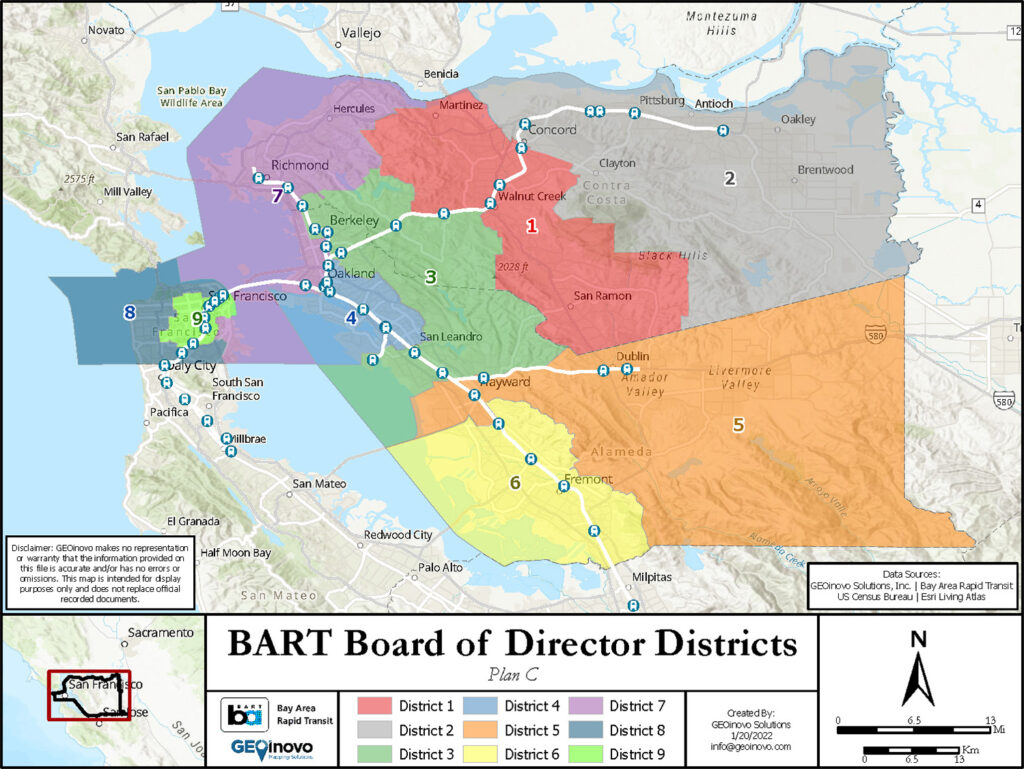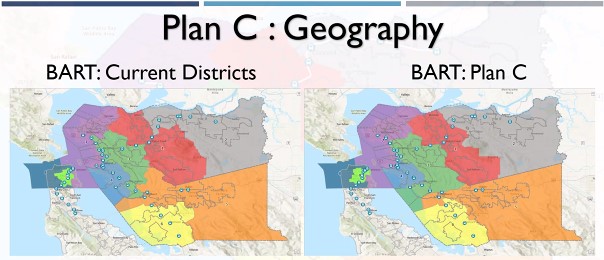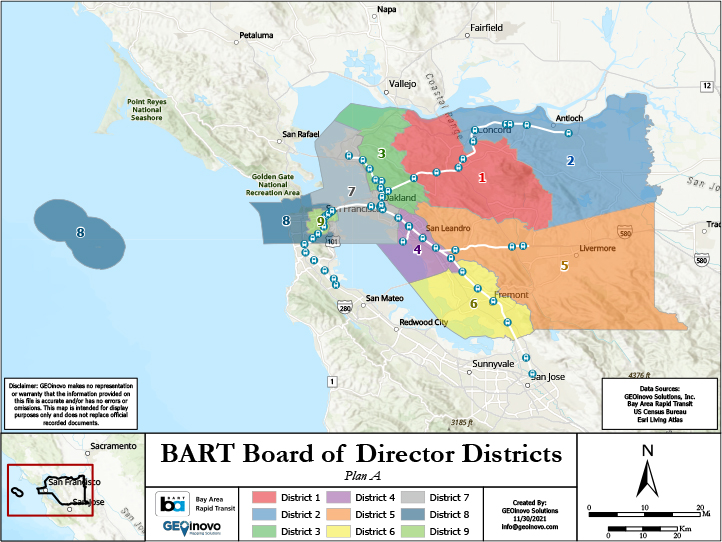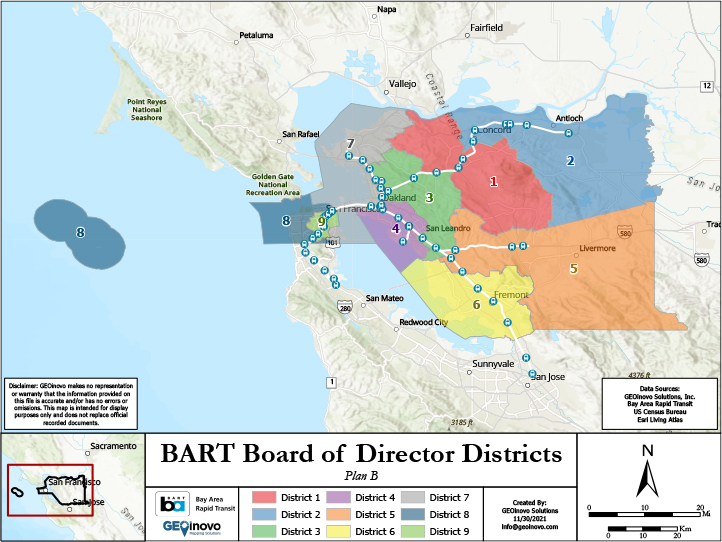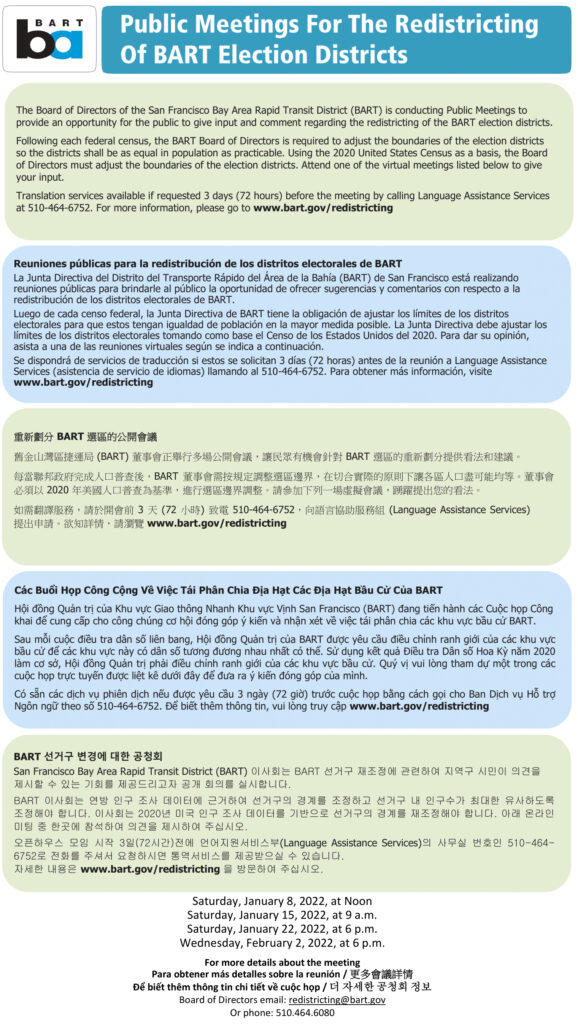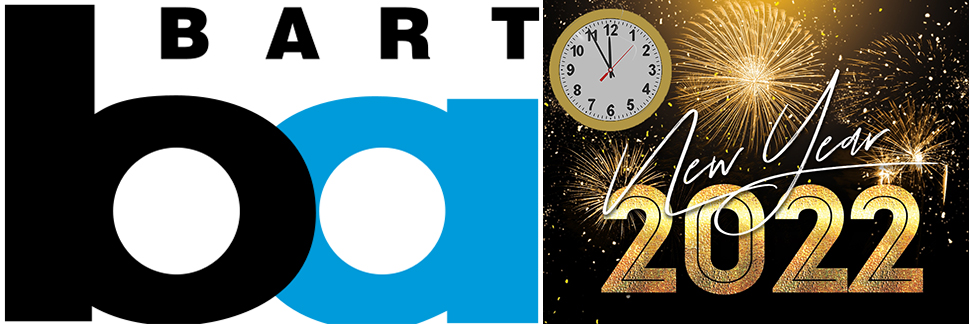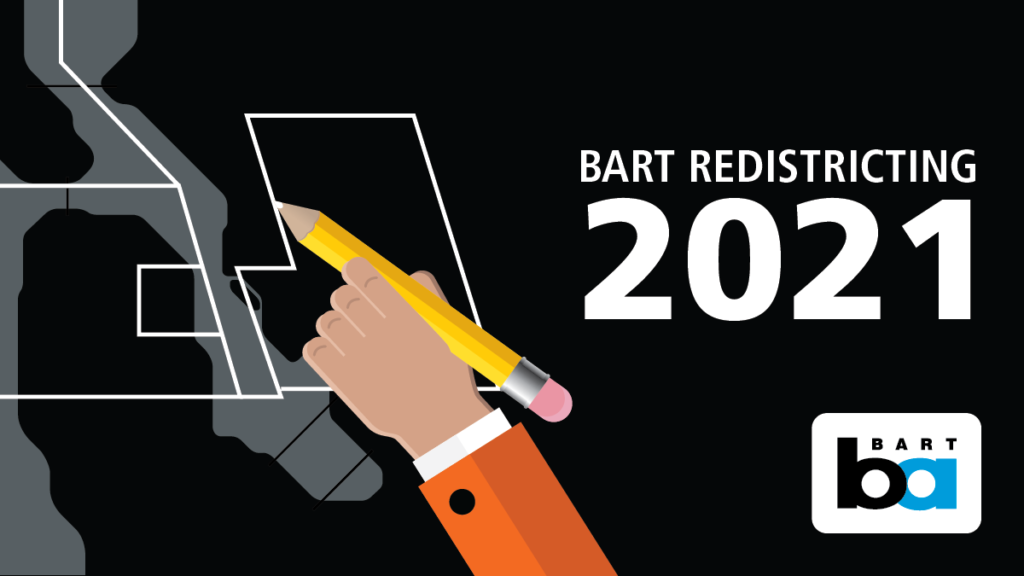BART issues new schedule for 2022
Wednesday, February 9th, 2022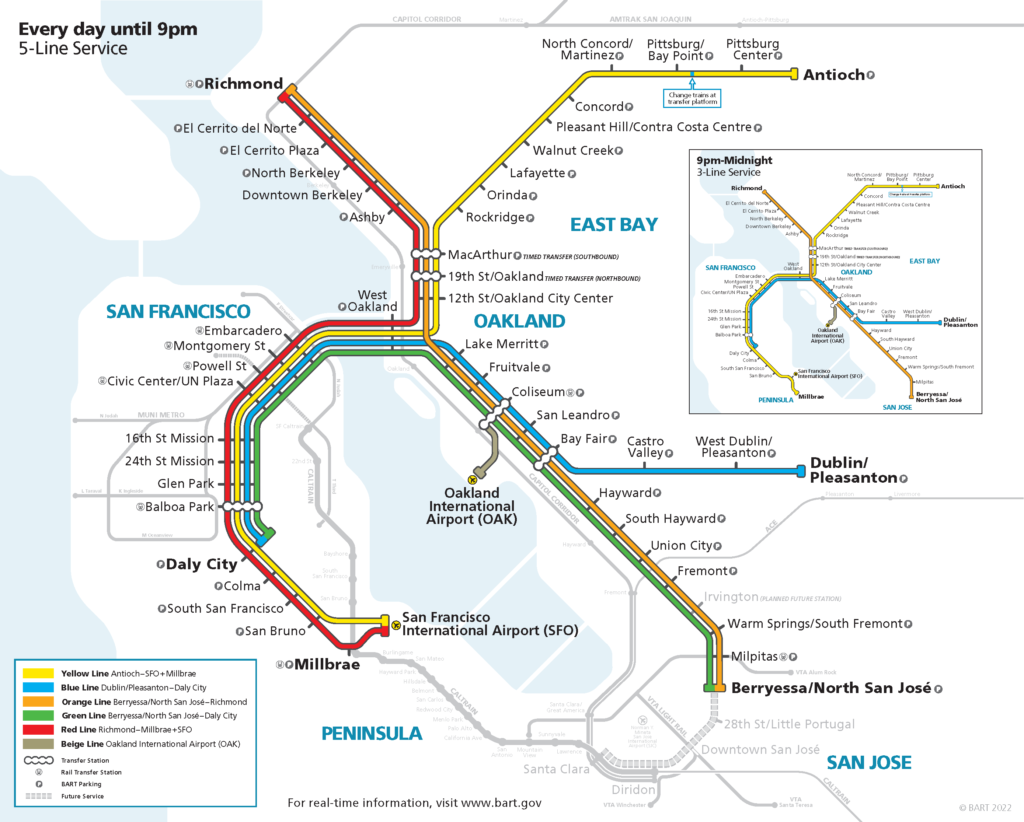
BART System Map. Source: BART.gov
BART’s schedule will change on Monday, February 14, 2022, with significant improvements to Sunday service. With this schedule change, BART will operate midnight service every night of the week representing a full restoration of pre-pandemic service hours.
Highlights include:
- Extend service to midnight on Sundays
- Run 5-line service every day (except for single-tracking Sundays) until about 9pm
- Consistent 3-line service every day after 9pm
- 4 trains an hour at SFO station on Sundays until 9pm
- 15-minute even headways on the Yellow line as far as Pittsburg Bay Point on Saturdays until about 8pm
- New transfer opportunity at Bay Fair for Dublin to Berryessa transfers every day
- Improved connections with Caltrain at Millbrae on Sundays before 9pm
- 12 single-tracking Sundays in 2022 when 3-line service will be provided
Some departure times will shift slightly. All riders are encouraged to look up their specific trips.
Sunday Service Improvements
Since the pandemic began BART has been closing at 9pm on Sundays to help accelerate infrastructure rebuilding projects. Beginning Sunday, February 20th, BART will extend Sunday service to midnight. Sunday service hours will be 8am-midight.
Starting Sunday, February 20, 2022, for the first time in history, BART will operate 5-line service on Sundays (except on 12 single-tracking Sundays when power cable replacement work takes place in San Francisco. 3-line service will run on single tracking Sundays). It is important to note the frequency of Sunday single tracking days that will remain as 3-line service with single tracking. March will have two Sundays of 5-line service. Some months will offer 5-line service on Sundays every other week. We’ve listed the 2022 Sunday single tracking days here.
Providing 5-line service on Sundays reduces the need to transfer for most riders and provides more frequency through the busiest core areas of our system. From 8am until evening (about 9pm), the Red line (Richmond to Millbrae + SFO) and Green line (Berryessa to Daly City) will run.
Running 5-Line service on Sundays provides more equitable service to Richmond and Berryessa line riders who previously had to transfer to complete their transbay trip-while other lines provided direct service. Based on ridership data 97% of Sunday riders will get to their destination without the need to transfer, up from 82%. Of those passengers who benefit from this change, about twice as many will ride the Red line than the Green line.
3-line service (Yellow, Blue and Orange lines) will operate every evening after around 9pm and on 12 select single-tracking Sundays. During 3-line service, the Yellow and Blue line will continue to run very close together through San Francisco to enable singling track through work zones. BART plans to improve this service pattern and run Yellow and Blue line trains more evenly spaced apart in the September 2022 schedule change.
Trains will continue to run on 30-minute headways on Sundays with some 15-minute levels of service due to running the Red and Green line. While some outlying areas will see 2 trains per hour on Sunday, most BART stations will see 4, 6, or 8 trains per hour.
New Transfer Opportunity at Bay Fair
More riders are coming in from the Dublin line and heading towards Berryessa. The schedule change includes a new transfer opportunity at Bay Fair every day during all service hours. Riders from Dublin on the Blue line will see a Green or Orange line train across the platform. This transfer has a tight window but the September 2022 schedule change will increase the window to allow for more flexibility to make the meet if there are delays.
Improved Connections with Other Transit Agencies
Most agencies operate the same schedule on Saturday and Sunday, making it difficult for them to design ideal transfers when BART schedules are different on Saturday and Sunday. Starting in February, the seven night 3-Line service that begins about 9:00 pm is matched all seven days which allows partner agencies to match their schedules with BART more successfully. The final trains of the night, all seven days in the week, share the same times.
We’ve updated the BART and Caltrain transfer timetable to outline the wait times of each connecting train. Offering 5-line service on Sundays reduces some wait times by 8 or 11 minutes. While weekdays and Saturday connections are very similar to what they were before, there are small improvements of 1-3 minutes shorter wait. For example, a 12-17 minute connection, becomes 9-14 minute connection.
Saturday Service
Saturday service hours will remain unchanged (6am-midnight). Trains will continue to run at 30-minute frequency with added trains on the Yellow line as far as Pittsburg/Bay Point until 8pm. This schedule change improves the Yellow line frequency with more even spaced 15 minute headways as far as Pittsburg/Bay Point compared to what was being offered before.
Weekday Service
Weekday service remains unchanged though some departure times have slightly shifted. Service hours continue to be 5am-midnight.
Pictured above is the system map showing 5-line service every day of the week for Sundays we are not single tracking.











